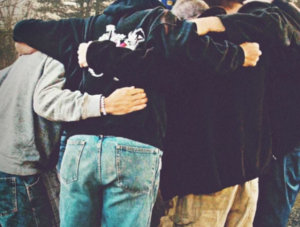Beyond drugs and alcohol, there is a meaningful life to be had for anyone provided however they are willing to make significant changes. We know this, we have seen it first hand at PACE Recovery Center; each year we help young men pull themselves out of the depths of despair and embrace a wholly new way of living. Males whose prospects for the future were exceedingly dim just a short time ago are today committed to doing whatever it takes to keep their disease at bay. Those same men are living examples of the power of recovery, and they serve as an inspiration to all who are interested in following a similar path.
When scrolling through news feeds of addiction-related topics, it can be easy to adopt the opinion that recovery is nearly impossible. Such is especially for some people when they see headlines about the almost two-decade-long opioid addiction epidemic, a crisis that has shattered families and stolen the lives of both young and old alike. With over 100 Americans perishing from opioid-related causes every day, and another 2.1 million people whose next use could be their last, it can be easy to become discouraged.
It is vital we balance the scales and dispel myths about addiction and recovery. And, the general public should know that for every tragic story, there is one of hope; with the help of detox facilities, treatment centers, and a daily program, men and women can persevere. This most deadly illness has a weakness, that of community, compassion, and empathy; working together with those who came before, people can overcome use disorders and find peace and serenity.
Recovery Boys
Encouraging people to take the leap from substance use to recovery isn’t simple, addiction has a way of persuading people to act in ways counter to their best interest. With that in mind, it helps if addicts first believe that recovery is possible and one way to accomplish the task of encouraging individuals to seek treatment is to show them stories of success. Documentary filmmaker and director, Elaine McMillion Sheldon, has made it her mission to light the way toward healing for many young men still “out there.” In her latest film, “Recovery Boys,” Sheldon follows four young men living with opioid use disorder as they chart a path out of the dark cave of addiction.
If you are familiar with her prior work about the opioid epidemic, “Heroin(e),” then you would likely agree that Sheldon aims to erode the stigma of addiction. “Heroin(e)” follows three women in Huntington, West Virginia, working on the frontlines of the epidemic. Some call Huntington the “overdose capital of the United States!” If you have not seen the Oscar-nominated film, you can stream it on Netflix.
While the spotlight focuses on empathetic people trying to save the lives of addicts in “Heroin(e),” Sheldon turns the lens on young men who do not want opioid addiction to be the end of their story in “Recovery Boys.” Like most people in early recovery, the four human subjects in Sheldon’s new film have many obstacles ahead, but watching them go through the process may inspire others to embark on similar journeys.
I make this film not to victimize, pity or make excuses for individuals, but to uplift the stories of people who are actively trying to make change, no matter how big or small,” Sheldon said in a statement.
Please take a moment to watch the trailer:
If you are having trouble watching, please click here.
Opioid Use Disorder Treatment for Men
Many young men across the country believe that recovery is not an option. Some of those same people give recovery a go for a time only to relapse; when that happens, it’s easy to resign oneself to negative lines of thought about the prospect of change. Becoming discouraged is understandable, but it shouldn’t be an excuse to give up on recovery altogether. The fact is that there are thousands of compassionate people working in the field of addiction medicine, many of whom are healing from addiction too, who are committed to helping others adopt a program of recovery. Mental illness is treatable; we can break the bonds of the disease, and long-term recovery is achievable. Although to achieve the above ends, individuals must work together!
Due to the complexities of opioid dependence, long-term treatment is the most effective way of bringing about lasting recovery. If you are a young adult male who is battling an opioid use disorder, our team of highly skilled addiction professionals can show you how life in recovery is possible. Please contact us at your earliest convenience to learn more about the PACE Recovery model.



